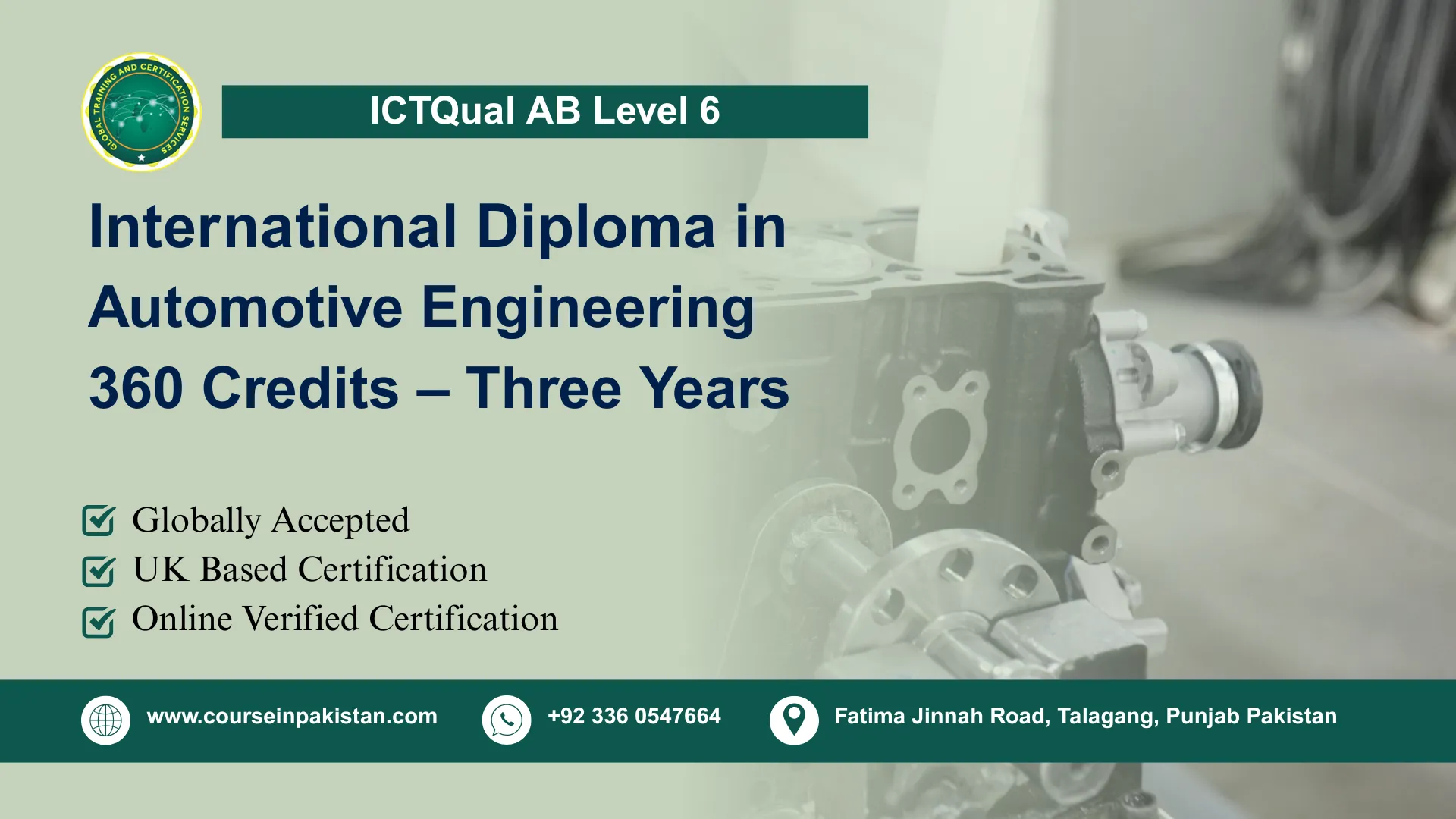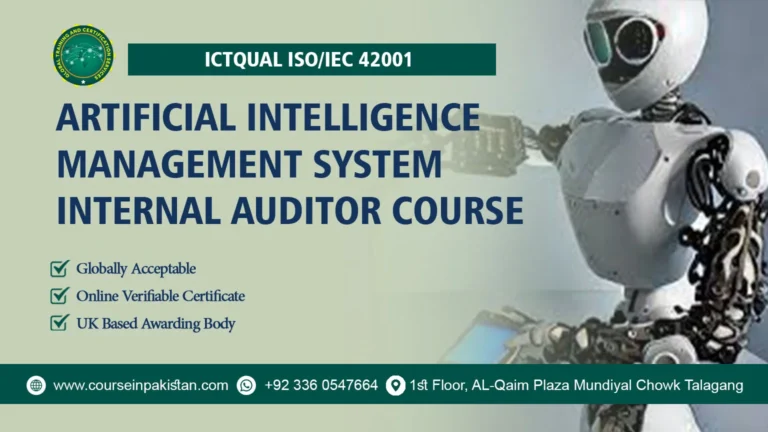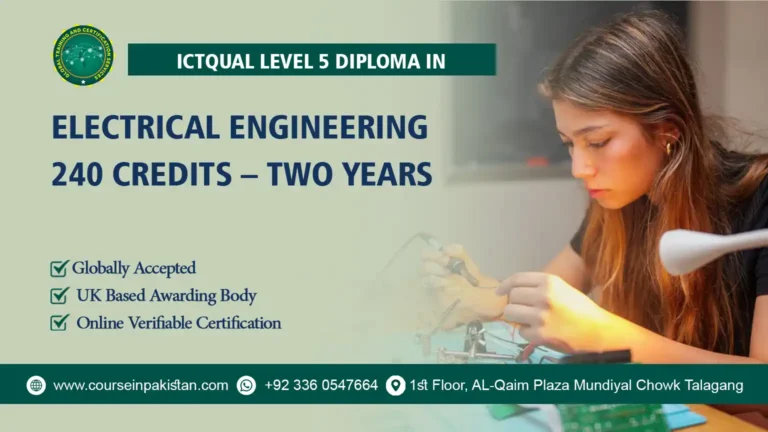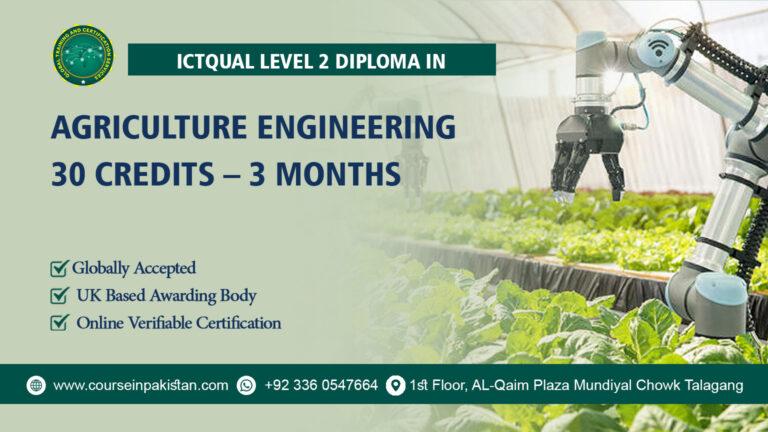
The ICTQual Level 6 Diploma in Automotive Engineering 360 Credits – Three Years is a comprehensive, globally recognized qualification designed to equip learners with advanced knowledge and practical skills in the automotive industry. This 360-credit program is entirely assignment-based, allowing students to study at their own pace from anywhere in the world. It is British Council verificable, MOFA and Embassy attestable, making it ideal for professional recognition, career advancement, and IQAMA approval.
This diploma is suitable for both fresh learners and experienced professionals. Fresh students are required to complete all 36 mandatory assignments within three years to gain certification. Experienced and competent professionals, with at least six years of relevant experience, can fast-track their qualification by validating their expertise and demonstrating knowledge in professional discussion meetings with an ICTQual AB Approved assessor, bypassing the full assessment load.
The program provides a solid foundation in automotive engineering principles, advanced vehicle systems, diagnostics, manufacturing, and emerging technologies, preparing learners for both technical and managerial roles within the automotive sector. Upon completion, graduates are equipped to excel in automotive engineering, maintenance, design, research, and leadership roles.
Course Overview
The ICTQual Level 6 Diploma in Automotive Engineering is a 360-credit, assignment-based program that combines foundational knowledge, practical applications, and advanced automotive engineering concepts. Learners gain expertise in vehicle dynamics, internal combustion engines, hybrid and electric vehicle systems, automotive electronics, diagnostics, and manufacturing processes.
The program is designed for flexibility, allowing learners to study at their own pace and from any location worldwide. It is British Council verificable and MOFA & Embassy attestable, ensuring international recognition. Fresh students must complete all mandatory assignments within three years, while experienced professionals with at least six years of relevant experience can achieve the qualification in a shorter period through professional discussions with an ICTQual AB Approved assessor.
This qualification not only prepares learners for technical excellence but also positions them for career growth and professional recognition in the global automotive industry.
Key Highlights of the Course:
- Fully assignment-based, flexible self-paced learning.
- 360 credits over three years, recognized internationally.
- Suitable for fresh graduates and experienced professionals.
- MOFA & Embassy attested, ideal for IQAMA approval.
- Covers advanced automotive systems, diagnostics, and emerging technologies.
Course Benefits
Professional Advancement
- Opens opportunities in automotive engineering, maintenance, and R&D.
- Prepares for managerial and leadership roles in the automotive sector.
Technical Expertise
- Develops advanced skills in vehicle dynamics, electronics, hybrid & electric systems, and diagnostics.
- Provides hands-on knowledge in automotive manufacturing and design processes.
Global Recognition
- Certification is verifiable by the British Council.
- MOFA & Embassy attestable for international and professional validation.
Flexibility and Accessibility
- Fully assignment-based, allowing learners to study at their own pace.
- Suitable for professionals and fresh graduates worldwide.
Career Opportunities
- Enhances employability in automotive engineering, service centers, R&D, and automotive manufacturing industries.
- Supports IQAMA approval and international career progression.
Course Study Units
This qualification, the ICTQual Level 6 Diploma in Automotive Engineering 360 Credits – Three Years, consists of 36 mandatory units.
Year 1: Foundation and Core Engineering Principles
- Introduction to Automotive Engineering
- Mathematics for Automotive Engineering
- Physics for Automotive Engineering
- Mechanical Engineering Principles
- Automotive Systems and Technology
- Electrical and Electronic Systems in Vehicles
- Engineering Materials for Automotive Design
- Vehicle Chassis and Suspension Systems
- Introduction to Vehicle Diagnostics
- Manufacturing Processes for Automotive Engineering
- Automotive Environmental Issues
- Health, Safety, and Environmental Management
Year 2: Advanced Automotive Technologies and Systems
- Advanced Engine Technologies
- Vehicle Dynamics and Handling
- Advanced Automotive Electronics
- Transmission and Powertrain Systems
- Vehicle HVAC Systems
- Vehicle Safety Systems
- Hybrid and Electric Vehicle Technologies
- Automotive Aerodynamics
- Automotive Materials Engineering
- Vehicle Assembly and Production Techniques
- Automotive Diagnostics and Troubleshooting
- Vehicle Testing and Performance Evaluation
Year 3: Industry Applications, Management, and Innovation
- Advanced Vehicle Design and Prototyping
- Automotive Control Systems
- Automotive Quality Control and Assurance
- Sustainability in Automotive Engineering
- Automotive Project Management
- Automotive Research and Development
- Vehicle Electromagnetic Compatibility
- Automotive Business and Marketing
- Autonomous Vehicles and Future Technologies
- Vehicle Fleet Management and Operations
- Automotive Regulatory Compliance and Standards
- Capstone Project in Automotive Engineering
Learning Outcomes
Year 1: Foundation and Core Engineering Principles
Introduction to Automotive Engineering
- Understand the fundamentals of automotive engineering and its role in modern transportation.
- Identify different vehicle types, systems, and components.
Mathematics for Automotive Engineering
- Apply mathematical concepts in automotive design, analysis, and problem-solving.
- Use algebra, calculus, and statistics in engineering calculations.
Physics for Automotive Engineering
- Apply principles of mechanics, thermodynamics, and materials science to vehicle systems.
- Analyze forces, energy, and motion in automotive contexts.
Mechanical Engineering Principles
- Demonstrate understanding of mechanical principles applicable to engines and vehicle systems.
- Apply basic mechanics in design and troubleshooting.
Automotive Systems and Technology
- Explain the operation of major vehicle systems including powertrain, suspension, and braking.
- Understand technological advancements in modern vehicles.
Electrical and Electronic Systems in Vehicles
- Identify and describe vehicle electrical circuits and electronic control systems.
- Apply basic troubleshooting techniques for vehicle electronics.
Engineering Materials for Automotive Design
- Understand properties and applications of metals, polymers, and composites in vehicle design.
- Evaluate material selection for performance, durability, and safety.
Vehicle Chassis and Suspension Systems
- Describe chassis layouts, suspension types, and their impact on vehicle dynamics.
- Analyze forces and stresses acting on vehicle chassis and suspension.
Introduction to Vehicle Diagnostics
- Demonstrate basic diagnostic procedures for mechanical and electrical faults.
- Use diagnostic tools to identify common vehicle issues.
Manufacturing Processes for Automotive Engineering
- Understand manufacturing methods used in automotive production.
- Apply knowledge of production processes to design and quality considerations.
Automotive Environmental Issues
- Understand environmental impacts of vehicles and regulatory requirements.
- Identify sustainable practices in automotive engineering.
Health, Safety, and Environmental Management
- Implement safety protocols in automotive workshops and production environments.
- Understand environmental regulations and sustainable practices in automotive workspaces.
Year 2: Advanced Automotive Technologies and Systems
Advanced Engine Technologies
- Analyze modern internal combustion and alternative engine technologies.
- Apply concepts for engine performance optimization and emissions control.
Vehicle Dynamics and Handling
- Evaluate vehicle stability, steering, and suspension performance.
- Apply principles of dynamics to improve handling and safety.
Advanced Automotive Electronics
- Understand electronic control units (ECUs) and embedded automotive systems.
- Apply diagnostic and troubleshooting techniques for advanced electronics.
Transmission and Powertrain Systems
- Understand manual, automatic, and hybrid powertrain systems.
- Analyze transmission efficiency and performance characteristics.
Vehicle HVAC Systems
- Describe operation of heating, ventilation, and air conditioning in vehicles.
- Diagnose and maintain HVAC systems for performance and comfort.
Vehicle Safety Systems
- Understand active and passive safety systems including ABS, airbags, and traction control.
- Apply safety standards and assessment procedures for vehicle protection.
Hybrid and Electric Vehicle Technologies
- Analyze hybrid and electric vehicle components and operation.
- Apply knowledge to battery management, propulsion, and regenerative braking systems.
Automotive Aerodynamics
- Understand aerodynamic principles affecting vehicle performance and fuel efficiency.
- Apply computational and experimental methods to analyze vehicle airflow.
Automotive Materials Engineering
- Evaluate materials for lightweight construction and durability.
- Apply materials selection for specialized automotive applications.
Vehicle Assembly and Production Techniques
- Understand assembly line operations and lean manufacturing techniques.
- Apply knowledge of production methods to optimize efficiency and quality.
Automotive Diagnostics and Troubleshooting
- Conduct in-depth fault-finding procedures for mechanical and electronic systems.
- Use advanced diagnostic tools and software to resolve complex vehicle issues.
Vehicle Testing and Performance Evaluation
- Perform vehicle testing to assess performance, safety, and compliance.
- Interpret test results to recommend improvements or modifications.
Year 3: Industry Applications, Management, and Innovation
Advanced Vehicle Design and Prototyping
- Apply CAD and simulation tools for designing vehicle components and systems.
- Develop prototypes for testing and evaluation.
Automotive Control Systems
- Analyze control systems for engines, braking, and vehicle stability.
- Apply automation principles to optimize performance.
Automotive Quality Control and Assurance
- Implement quality assurance processes in automotive manufacturing.
- Use inspection techniques to maintain compliance with standards.
Sustainability in Automotive Engineering
- Integrate environmentally friendly practices into automotive design and manufacturing.
- Evaluate life-cycle impacts of vehicles and systems.
Automotive Project Management
- Plan, organize, and manage automotive engineering projects effectively.
- Apply project management tools and techniques to ensure timely delivery.
Automotive Research and Development
- Conduct research for innovation in automotive technologies.
- Develop solutions to improve vehicle performance, efficiency, and safety.
Vehicle Electromagnetic Compatibility
- Analyze EMC issues in vehicles and implement mitigation strategies.
- Ensure compliance with regulatory standards for electronic systems.
Automotive Business and Marketing
- Understand market trends, business models, and customer requirements in the automotive sector.
- Develop strategies for product positioning and sales.
Autonomous Vehicles and Future Technologies
- Explore concepts and technologies behind autonomous and connected vehicles.
- Evaluate challenges and opportunities in implementing future vehicle technologies.
Vehicle Fleet Management and Operations
- Apply operational strategies for managing commercial vehicle fleets.
- Use analytics and performance metrics to optimize fleet efficiency.
Automotive Regulatory Compliance and Standards
- Understand national and international automotive regulations.
- Ensure compliance in design, manufacturing, and testing processes.
Capstone Project in Automotive Engineering
- Integrate knowledge and skills from all units into a comprehensive engineering project.
- Demonstrate problem-solving, innovation, and project management abilities.
Who is This Course For?
- Individuals passionate about vehicles, automotive systems, and engineering design.
- Learners aiming to build a career in automotive engineering, research, or manufacturing.
- Professionals seeking to upgrade skills in modern vehicle technologies, including electric and autonomous vehicles.
- Fresh graduates looking for an internationally recognized, assignment-based qualification to start their automotive career.
- Experienced professionals with at least 6 years of relevant experience who wish to fast-track certification through professional discussion.
Future Progression
- Pursue advanced leadership roles in automotive engineering and vehicle design.
- Work as Senior Automotive Engineers, Design Engineers, or Vehicle Systems Specialists.
- Specialize in Electric Vehicle (EV) design, autonomous vehicles, or hybrid propulsion systems.
- Enter roles in automotive manufacturing, R&D, testing, and quality assurance.
- Opportunities to establish automotive start-ups or consulting services in the mobility sector.
Academic Pathways:
- Progress to Level 7 Diplomas in Automotive or Mechanical Engineering for managerial and strategic roles.
- Enroll in specialized certifications for Electric Vehicles, Robotics, or Mechatronics.
- Advance to bachelor’s or master’s programs in Mechanical, Automotive, or Mechatronics Engineering.
- Undertake research projects or pursue academic pathways in innovation and sustainable automotive technologies.
Conclusion
The ICTQual Level 6 Diploma in Automotive Engineering equips learners with comprehensive knowledge of vehicle design, advanced automotive technologies, and practical engineering skills. This assignment-based, flexible program is ideal for both fresh learners and experienced professionals, offering globally recognized certification that is British Council verifiable, MOFA, and Embassy attested. Graduates are well-prepared to enter the automotive industry, pursue higher studies, or explore innovative careers in the rapidly evolving automotive sector. Whether starting fresh or leveraging years of professional experience, this diploma provides the tools and recognition needed to excel.






